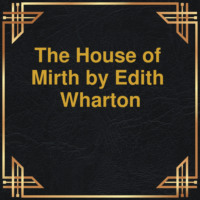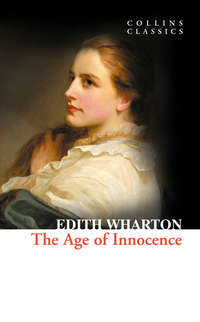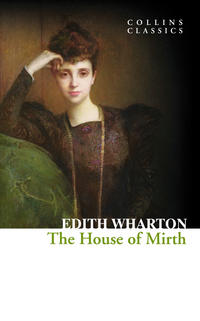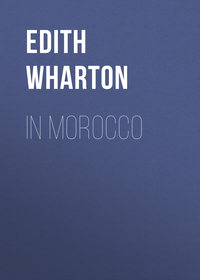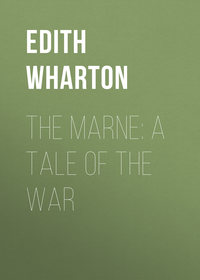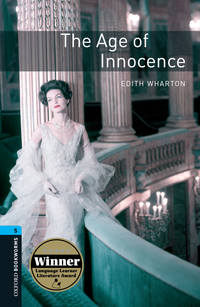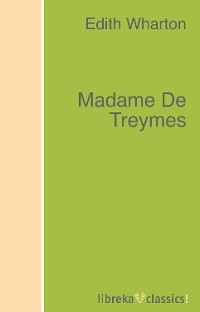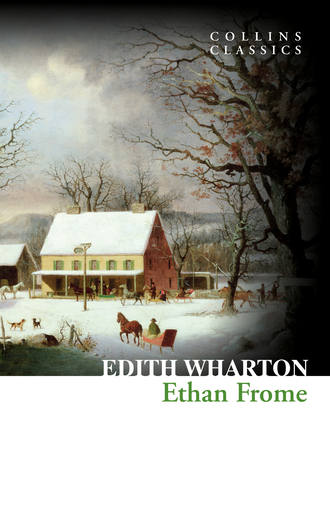
Полная версия
Ethan Frome

ETHAN FROME
Edith Wharton

Copyright
William Collins
An imprint of HarperCollinsPublishers
1 London Bridge Street
London SE1 9GF
WilliamCollinsBooks.com
This eBook published by William Collins in 2015
Life & Times section © HarperCollinsPublishers Ltd
Gerard Cheshire asserts his moral right as author of the Life & Times section
Classic Literature: Words and Phrases adapted from
Collins English Dictionary
Cover by e-Digital Design. Cover image: Seven Miles to Farmington c. 1853 (oil on canvas), George Henry Durrie (1820–63)/Florence Griswold Museum, Old Lyme, Connecticut, USA/Gift of the Hartford Steam Boiler Inspection & Insurance Co./Bridgeman images
A catalogue record for this book is available from the British Library.
All rights reserved under International and Pan-American Copyright Conventions. By payment of the required fees, you have been granted the non-exclusive, non-transferable right to access and read the text of this e-book on-screen. No part of this text may be reproduced, transmitted, down-loaded, decompiled, reverse engineered, or stored in or introduced into any information storage and retrieval system, in any form or by any means, whether electronic or mechanical, now known or hereinafter invented, without the express written permission of HarperCollins.
Source ISBN: 9780008110543
Ebook Edition © January 2015 ISBN: 9780008110550
Version: 2014-12-18
History of Collins
In 1819, millworker William Collins from Glasgow, Scotland, set up a company for printing and publishing pamphlets, sermons, hymn books, and prayer books. That company was Collins and was to mark the birth of HarperCollins Publishers as we know it today. The long tradition of Collins dictionary publishing can be traced back to the first dictionary William published in 1824, Greek and English Lexicon. Indeed, from 1840 onwards, he began to produce illustrated dictionaries and even obtained a licence to print and publish the Bible.
Soon after, William published the first Collins novel, Ready Reckoner; however, it was the time of the Long Depression, where harvests were poor, prices were high, potato crops had failed, and violence was erupting in Europe. As a result, many factories across the country were forced to close down and William chose to retire in 1846, partly due to the hardships he was facing.
Aged 30, William’s son, William II, took over the business. A keen humanitarian with a warm heart and a generous spirit, William II was truly “Victorian” in his outlook. He introduced new, up-to-date steam presses and published affordable editions of Shakespeare’s works and The Pilgrim’s Progress, making them available to the masses for the first time. A new demand for educational books meant that success came with the publication of travel books, scientific books, encyclopedias, and dictionaries. This demand to be educated led to the later publication of atlases, and Collins also held the monopoly on scripture writing at the time.
In the 1860s Collins began to expand and diversify and the idea of “books for the millions” was developed. Affordable editions of classical literature were published, and in 1903 Collins introduced 10 titles in their Collins Handy Illustrated Pocket Novels. These proved so popular that a few years later this had increased to an output of 50 volumes, selling nearly half a million in their year of publication. In the same year, The Everyman’s Library was also instituted, with the idea of publishing an affordable library of the most important classical works, biographies, religious and philosophical treatments, plays, poems, travel, and adventure. This series eclipsed all competition at the time, and the introduction of paperback books in the 1950s helped to open that market and marked a high point in the industry.
HarperCollins is and has always been a champion of the classics, and the current Collins Classics series follows in this tradition – publishing classical literature that is affordable and available to all. Beautifully packaged, highly collectible, and intended to be reread and enjoyed at every opportunity.
Life & Times
Wharton and Class
Many novelists use their prose as a means of expressing their frustrations with the contradictions and hypocrisies of human behaviour, often because they themselves do not adhere particularly stringently to the rules of etiquette that exist in their society. Of course 19th century societies in Britain and the USA were prone to formalizing polite society as a way of distinguishing the haves from the have-nots. Edith Wharton was born into a privileged American family, but she was equipped with the sensibilities to notice the contrasting absurdity with which many of her class went about their lives in public and in private. Like many other novelists before her, Wharton saw that people were people wherever they happened to fit in the hierarchy of society. They were equally capable of honourable and dishonourable behaviour; it is just that the upper class tended to cover up the latter and exaggerate the former for the sake of keeping up appearances. Wharton was not vitriolic though, for her writing is imbued with humour even though it criticises between the lines. The Age of Innocence is essentially a story about vanity, pride, judgement, temptation and prejudice in the well-to-do cohort of late 19th century US society. Underpinning the tale is the double-standard.
The Age of Innocence
The Age of Innocence is fundamentally about a gentleman who is engaged to be married, but allows his affections to stray toward another woman who is separated from her husband and about to divorce. In today’s occidental society the plot would barely raise an eyebrow, but in its period it would have been viewed as an absolute scandal. Wharton published the book in 1920, some 40-odd years after the time in which the story is set, but she was 58 years old and very familiar with the subject matter as she had been born and raised in the environment she describes. Even in the first quarter of the 20th century divorce was considered something of a taboo, so the book caused quite a stir. Wharton had, herself, been in a loveless marriage for almost three decades and had experienced a nervous breakdown following her divorce in 1913, so writing The Age of Innocence must have been therapeutic as well as a vessel through which Wharton could show the world her views. The basic premise of her story was that if you belong to a society that will trap you in marriage, you better be very sure that you are marrying the right person.
In society today, the finger of judgement is no longer pointed at those who do not succeed in marriage. As a consequence, many contemporary readers have an interest in Wharton’s genre. While they see that an overly formalized society can make marriage oppressive and generate double-standards, they also see that a lack of formality leads to a society where marriage is entirely devalued.
Wharton’s masterpiece is about as personal as one can get as a writer. The central character, Newland, still goes ahead with his marriage despite his obsessive feelings for the other woman, Countess Ellen. His wife, May, is consequently destined for a life of betrothal with unrequited love. So too is he of course, such is his sense of honour in being seen to do the right thing in the eyes of the society he belongs to. Following the marriage Newland cannot desist from courting Ellen and is on the verge of leaving his wife when he discovers that May is pregnant.
Ellen emigrates to Europe and Newland remains in America to feign happiness with May for the sake of their unborn child. A full quarter of a century later, Newland travels to Europe with his son, following May’s death. He has an opportunity to meet Ellen again, but realizes that he can never restore the past, so he walks away.
From Wharton’s point of view, all three characters are tragic in their own way. May lives through a marriage without real passion; Newland is tormented and then disappointed; Ellen is exiled by her family and never reunited with Newland even though the opportunity arises. It isn’t clear where Wharton places herself necessarily. Perhaps there is something of her in all three personalities, perhaps not, but the overall theme certainly echoes her own situation. Critics were so impressed by the book that Wharton was awarded the Pulitzer Prize in 1921.
The title of the novel is supposed to be satirical, a comment from Wharton on the way polite society wished to be viewed. Wharton had, in 1905, published a forerunner to The Age of Innocence in the form of The House of Mirth. The earlier book, as its title suggests, had been far more vitriolic and mocking in its condemnations and Wharton had apparently wished to redress and make amends with the later book. By the time The Age of Innocence was published the world had witnessed the Great War (World War I) and people’s attitudes had altered. Equality and egalitarianism were taking over from elitism and etiquette. In addition, in 1919 congress bowed to the pressures of suffrage and gave US women the vote. All in all, the USA had changed markedly in the 15 years between Wharton’s two novels and it was now ready to recognize and celebrate the importance of her work.
In some respects Wharton’s theme belongs to the same stable as those addressed by Jane Austen a century earlier in England. Austen’s stories, like Wharton’s, work within a behavioural framework of etiquette which is no longer relevant. Nevertheless, the drama, romance and tragedy is consequently heightened as a result of the limiting strict societal rules.
Ethan Frome
In 1911, the year that Wharton moved to Europe after the breakdown of her marriage, her novel Ethan Frome was published. A tragic love story, it has at its centre various idiosyncrasies of human behaviour that have significant consequences for the characters in the story.
Set in New England, the eponymous Ethan Frome falls in love with his ill wife’s cousin, Mattie, whom they have employed as a carer. Yet the relationship is doomed, and tragedy ensues. The plot is intricately linked to the polite society in which they live; there are strict rules of behaviour that cannot be broken, and it is an adherence to these that informs the lovers’ actions. Ethan Frome, similarly to the work of other novelists, uses the constraints of social etiquette as a tool for manipulating both characters and plotlines.
Imposing unwritten rules of behaviour on the characters’ sense of morality allows the author to invent emotive situations to engage their readers. The turmoil of Ethan’s mind, full of infidelity, is only worth writing about in a world where such thoughts are deemed unacceptable by the society in which he lives.
Wharton lived in era that was characterized by a seismic shift in societal norms and attitudes, in part due to the turn of the century and the advent of world conflict that it brought. The new world that emerged began slowly to feel more egalitarian, so socially divisive and restrictive rules of etiquette were increasingly disregarded.
CONTENTS
Cover
Title Page
Copyright
History of Collins
Life & Times
Author’s Note
Ethan Frome
Chapter 1
Chapter 2
Chapter 3
Chapter 4
Chapter 5
Chapter 6
Chapter 7
Chapter 8
Chapter 9
Classic Literature: Words and Phrases
About the Publisher
AUTHOR’S NOTE
I had known something of New England village life long before I made my home in the same country as my imaginary Starkfield; though during the years spent there, certain of its aspects became much more familiar to me.
Even before that final initiation, however, I had an uneasy sense that the New England of fiction bore little – except a vague botanical and dialectical – resemblance to the harsh and beautiful land as I had seen it. Even the abundant enumeration of sweet-fern, asters and mountain-laurel, and the conscientious reproduction of the vernacular, left me with the feeling that the outcropping granite had in both cases been overlooked. I give the impression merely as a personal one; it accounts for Ethan Frome, and may, to some readers, in a measure justify it.
So much for the origin of the story; there is nothing else of interest to say of it, except as concerns its construction.
The problem before me, as I saw in the first flash, was this: I had to deal with a subject of which the dramatic climax, or rather the anti-climax, occurs a generation later than the first acts of the tragedy. This enforced lapse of time would seem to anyone persuaded – as I have always been – that every subject (in the novelist’s sense of the term) implicitly contains its own form and dimensions, to mark ‘Ethan Frome’ as the subject of a novel. But I never thought this for a moment, for I had felt, at the same time, that the theme of my tale was not one on which many variations could be played. It must be treated as starkly and summarily as life had always presented itself to my protagonists; any attempt to elaborate and complicate their sentiments would necessarily have falsified the whole. They were, in truth, these figures, my granite outcroppings; but half emerged from the soil, and scarcely more articulate.
This incompatibility between subject and plan would perhaps have seemed to suggest that my ‘situation’ was after all one to be rejected. Every novelist has been visited by the insinuating wraiths of false ‘good situations’, siren-subjects luring his cockle-shell to the rocks; their voice is oftenest heard, and their mirage-sea beheld, as he traverses the waterless desert which awaits him half-way through whatever work is actually in hand. I knew well enough what song those sirens sang, and had often tired myself to my dull job till they were out of hearing – perhaps carrying a lost masterpiece in their rainbow veils. But I had no such fear of them in the case of Ethan Frome. It was the first subject I had ever approached with full confidence in its value, for my purpose, and a relative faith in my power to render at least a part of what I saw in it.
Every novelist, again, who ‘intends upon’ his art, has lit upon such subjects, and been fascinated by the difficulty of presenting them in the fullest relief, yet without an added ornament or a trick of the drapery or lighting. This was my task, if I were to tell the story of Ethan Frome; and my scheme of construction – which met with the immediate and unqualified disapproval of the few friends to whom I had tentatively outlined it – I still think justified in the given case. It appears to me, indeed, that, while an air of artificiality is lent to a tale of complex and sophisticated people which the novelist causes to be guessed at and interpreted by any mere onlooker, there need be no such drawback if the looker-on is sophisticated, and the people he interprets are simple. If he is capable of seeing all around them, no violence is done to probability in allowing him to exercise this faculty; it is natural enough that he should act as the sympathising intermediary between his rudimentary characters and the more complicated minds to whom he is trying to present them. But this is all self-evident, and needs explaining only to those who have never thought of fiction as an art of composition.
The real merit of my construction seems to me to lie in a minor detail. I had to find means to bring my tragedy, in a way at once natural and picture-making, to the knowledge of its narrator. I might have sat him down before a village gossip who would have poured out the whole affair to him in a breath, but in doing this I should have been false to two essential elements of my picture: first, the deep-rooted reticence and inarticulateness of the people I was trying to draw, and secondly the effort of ‘roundness’ (in the plastic sense) produced by letting their case be seen through eyes as different as those of Harmon Gow and Mrs Ned Hale. Each of my chroniclers contributes to the narrative just so much as he or she is capable of understanding of what, to them, is a complicated and mysterious case; and only the narrator of the tale has scope enough to see it all, to resolve it back into simplicity, and to put it in its rightful place among his larger categories.
I make no claim for originality in following a method of which La Grande Bretêche and The Ring and the Book had set me the magnificent example; my one merit is, perhaps, to have guessed that the proceeding there employed was also applicable to my small tale.
I have written this brief analysis – the first I have ever published of any of my books – because, as an author’s introduction to his work, I can imagine nothing of any value to his readers except a statement as to why he decided to attempt the work in question, and why he selected one form rather than another for its embodiment. These primary aims, the only ones that can be explicitly stated, must, by artist, be almost instinctively felt and acted upon before there can pass into his creation that imponderable something more which causes life to circulate in it, and preserves it for a little from decay.
EDITH WHARTON
31 March 1922
ETHAN FROME
I had the story, bit by bit, from various people, and, as generally happens in such cases, each time it was a different story.
If you know Starkfield, Massachusetts, you know the post-office. If you know the post-office you must have seen Ethan Frome drive up to it, drop the reins on his hollow-backed bay and drag himself across the brick pavement to the white colonnade: and you must have asked who he was.
It was there that, several years ago, I saw him for the first time; and the sight pulled me up sharp. Even then he was the most striking figure in Starkfield, though he was but the ruin of a man. It was not so much his great height that marked him, for the “natives” were easily singled out by their lank longitude from the stockier foreign breed: it was the careless powerful look he had, in spite of a lameness checking each step like the jerk of a chain. There was something bleak and unapproachable in his face, and he was so stiffened and grizzled that I took him for an old man and was surprised to hear that he was not more than fifty-two. I had this from Harmon Gow, who had driven the stage from Bettsbridge to Starkfield in pre-trolley days and knew the chronicle of all the families on his line.
“He’s looked that way ever since he had his smash-up; and that’s twenty-four years ago come next February,” Harmon threw out between reminiscent pauses.
The “smash-up” it was—I gathered from the same informant—which, besides drawing the red gash across Ethan Frome’s forehead, had so shortened and warped his right side that it cost him a visible effort to take the few steps from his buggy to the post-office window. He used to drive in from his farm every day at about noon, and as that was my own hour for fetching my mail I often passed him in the porch or stood beside him while we waited on the motions of the distributing hand behind the grating. I noticed that, though he came so punctually, he seldom received anything but a copy of the Bettsbridge Eagle, which he put without a glance into his sagging pocket. At intervals, however, the post-master would hand him an envelope addressed to Mrs. Zenobia—or Mrs. Zeena-Frome, and usually bearing conspicuously in the upper left-hand corner the address of some manufacturer of patent medicine and the name of his specific. These documents my neighbour would also pocket without a glance, as if too much used to them to wonder at their number and variety, and would then turn away with a silent nod to the post-master.
Every one in Starkfield knew him and gave him a greeting tempered to his own grave mien; but his taciturnity was respected and it was only on rare occasions that one of the older men of the place detained him for a word. When this happened he would listen quietly, his blue eyes on the speaker’s face, and answer in so low a tone that his words never reached me; then he would climb stiffly into his buggy, gather up the reins in his left hand and drive slowly away in the direction of his farm.
“It was a pretty bad smash-up?” I questioned Harmon, looking after Frome’s retreating figure, and thinking how gallantly his lean brown head, with its shock of light hair, must have sat on his strong shoulders before they were bent out of shape.
“Wust kind,” my informant assented. “More’n enough to kill most men. But the Fromes are tough. Ethan’ll likely touch a hundred.”
“Good God!” I exclaimed. At the moment Ethan Frome, after climbing to his seat, had leaned over to assure himself of the security of a wooden box—also with a druggist’s label on it—which he had placed in the back of the buggy, and I saw his face as it probably looked when he thought himself alone. “That man touch a hundred? He looks as if he was dead and in hell now!”
Harmon drew a slab of tobacco from his pocket, cut off a wedge and pressed it into the leather pouch of his cheek. “Guess he’s been in Starkfield too many winters. Most of the smart ones get away.”
“Why didn’t he?”
“Somebody had to stay and care for the folks. There warn’t ever anybody but Ethan. Fust his father—then his mother—then his wife.”
“And then the smash-up?”
Harmon chuckled sardonically. “That’s so. He had to stay then.”
“I see. And since then they’ve had to care for him?”
Harmon thoughtfully passed his tobacco to the other cheek. “Oh, as to that: I guess it’s always Ethan done the caring.”
Though Harmon Gow developed the tale as far as his mental and moral reach permitted there were perceptible gaps between his facts, and I had the sense that the deeper meaning of the story was in the gaps. But one phrase stuck in my memory and served as the nucleus about which I grouped my subsequent inferences: “Guess he’s been in Starkfield too many winters.”
Before my own time there was up I had learned to know what that meant. Yet I had come in the degenerate day of trolley, bicycle and rural delivery, when communication was easy between the scattered mountain villages, and the bigger towns in the valleys, such as Bettsbridge and Shadd’s Falls, had libraries, theatres and Y. M. C. A. halls to which the youth of the hills could descend for recreation. But when winter shut down on Starkfield and the village lay under a sheet of snow perpetually renewed from the pale skies, I began to see what life there—or rather its negation—must have been in Ethan Frome’s young manhood.
I had been sent up by my employers on a job connected with the big power-house at Corbury Junction, and a long-drawn carpenters’ strike had so delayed the work that I found myself anchored at Starkfield—the nearest habitable spot—for the best part of the winter. I chafed at first, and then, under the hypnotising effect of routine, gradually began to find a grim satisfaction in the life. During the early part of my stay I had been struck by the contrast between the vitality of the climate and the deadness of the community. Day by day, after the December snows were over, a blazing blue sky poured down torrents of light and air on the white landscape, which gave them back in an intenser glitter. One would have supposed that such an atmosphere must quicken the emotions as well as the blood; but it seemed to produce no change except that of retarding still more the sluggish pulse of Starkfield. When I had been there a little longer, and had seen this phase of crystal clearness followed by long stretches of sunless cold; when the storms of February had pitched their white tents about the devoted village and the wild cavalry of March winds had charged down to their support; I began to understand why Starkfield emerged from its six months’ siege like a starved garrison capitulating without quarter. Twenty years earlier the means of resistance must have been far fewer, and the enemy in command of almost all the lines of access between the beleaguered villages; and, considering these things, I felt the sinister force of Harmon’s phrase: “Most of the smart ones get away.” But if that were the case, how could any combination of obstacles have hindered the flight of a man like Ethan Frome?




